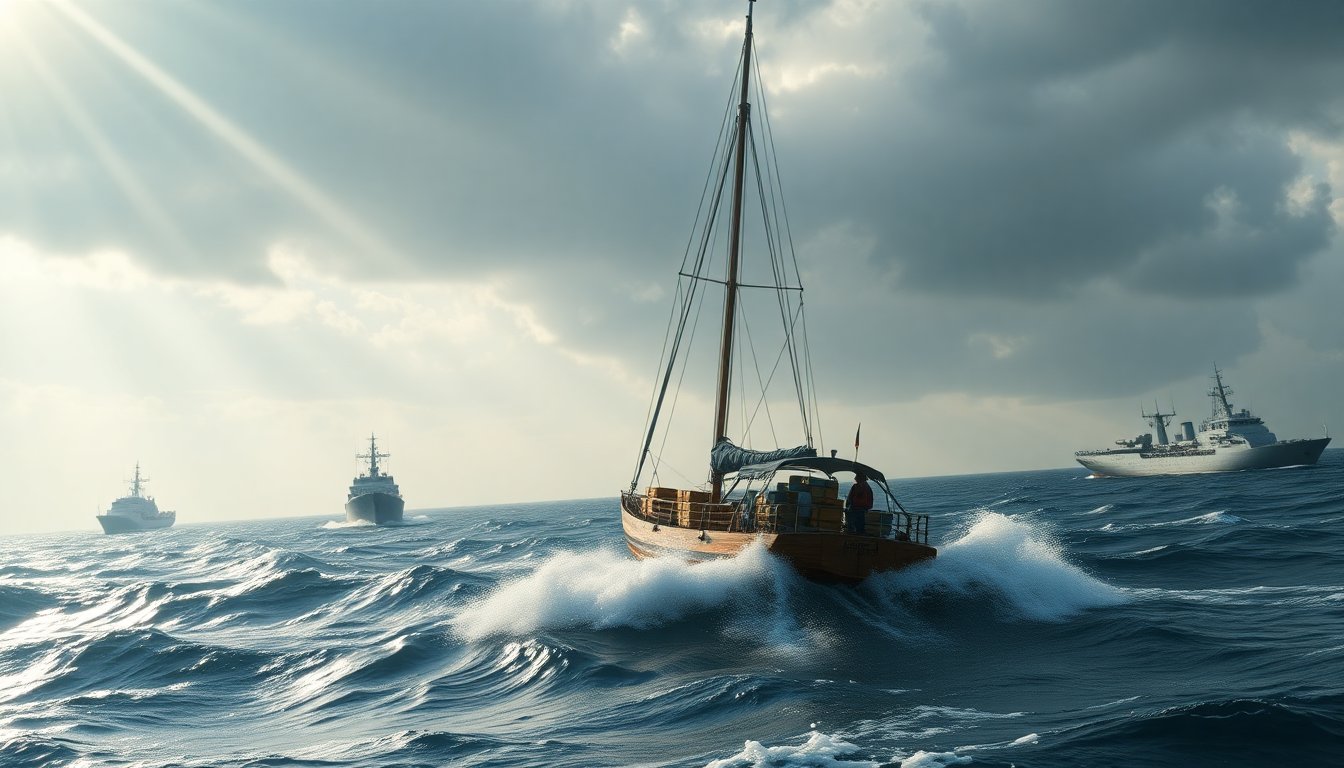Table of Contents
The conflict in the Middle East escalates as an aid flotilla organized by pro-Palestinian activists sets sail towards Gaza. This mission seeks to provide essential humanitarian assistance to a region grappling with significant challenges. However, the journey poses serious risks, as the Israeli navy is prepared to intervene, raising concerns about potential confrontations at sea.
Background of the flotilla mission
The current flotilla movement originates from a long history of maritime activism aimed at supporting Palestine. Over the years, various missions have attempted to breach the blockade on Gaza, delivering supplies, medical aid, and other vital resources. Activists maintain that these efforts are essential for raising awareness of the ongoing struggles faced by Gazans and for providing crucial support during crises.
Historical context
The phenomenon of aid flotillas has a complex history, attracting international attention during significant events such as the 2010 Gaza flotilla raid. In that incident, Israeli forces boarded a ship, resulting in a deadly confrontation. Since then, tensions have escalated, with each subsequent attempt to breach the blockade facing strong resistance from the Israeli military. The current mission appears to be gaining momentum, with hundreds of activists prepared to confront the risks involved.
Preparations and expected outcomes
As the flotilla nears the coast of Gaza, the Israeli navy is reportedly mobilizing for a decisive response. The Israeli government has issued stern warnings to the activists, making it clear that any attempt to breach the naval blockade will face significant consequences. This has raised concerns that the situation could quickly escalate, potentially leading to violence on the water.
Military readiness
The Israeli navy, recognized for its advanced operational capabilities, is preparing to deploy various vessels and personnel to intercept the aid flotilla. The navy’s strategy generally comprises a mix of warnings, interception, and, if deemed necessary, the use of force. Conversely, the activists remain resolute in their mission, asserting that their cause is just and they bear a moral obligation to deliver aid. This fundamental clash of ideologies is poised to lead to a significant confrontation.
Implications of the confrontation
The impending standoff between the aid flotilla and the Israeli navy carries substantial implications for both parties involved. For the activists, successfully delivering aid could emerge as a potent symbol of resilience and determination. However, a violent clash could provoke severe repercussions, including international backlash and potential casualties.
International response
The global community is closely monitoring the unfolding events. Human rights organizations and political entities are expressing concerns over the potential for violence and the humanitarian implications of the blockade. The situation may escalate into a broader diplomatic crisis, with impacts that extend beyond the immediate conflict, influencing international relations and perceptions of Israel’s policies in the region.
As the flotilla approaches Gaza, tensions remain high. The outcome of this mission is uncertain, but the risk of confrontation is significant, with both activists and the Israeli navy prepared for action. The world watches closely, as these events could influence the narrative surrounding the Israeli-Palestinian conflict for the foreseeable future.


